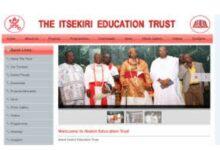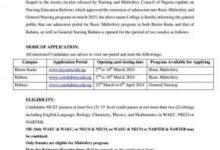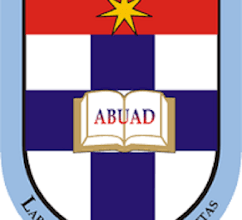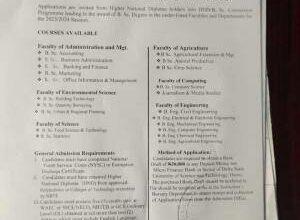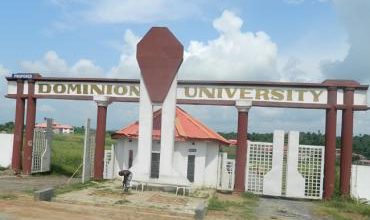Education System in Nigeria; Primary, Secondary and Tertiary
In this post, we will discuss on the education system in Nigeria. Here, we will review the current system of education in Nigeria. We will also review the history of Nigerian education system.
In Nigeria, the education sector is under the supervision of the Ministry of Education. The responsibility for the implementation of state-controlled policy that governs public education and state schools rests on the shoulders of local authorities. Education policies in Nigeria is not balanced due to political and ethnic disunity.
👉 Relocate to Canada Today!
Live, Study and Work in Canada. No Payment is Required! Hurry Now click here to Apply >> Immigrate to CanadaQuality learning, curriculum and funding differences can be observed across the different regions in the country. Schools in the northern part of the country are not as developed as those in the southern parts, and the quality of learning is not at the same level.
Read More: 10 Problems of Universal Basic Education (UBE) in Nigeria and Possible Solutions
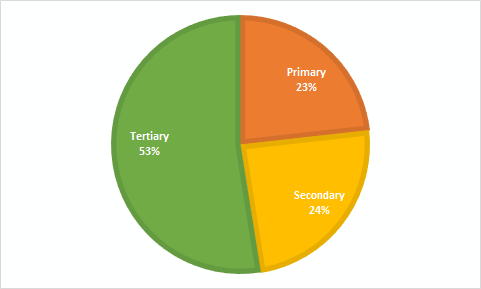
Presently, Nigeria is burdened with the highest population of out of school children in the world with most of those children residing in the north. To be a graduate in Nigeria, one would have to go through Primary education, Secondary education and Tertiary education.
Education System in Nigeria
The system of education in use today in Nigeria is the Universal Basic Education (UBE) also known as the 9-3-4 system which was introduced to replace the 6-3-3-4 system of education
This newly adopted system took of in 2006 and it is expected to be reshaped to meet the Millenium Development Goals (MDGs) target.
The system mandates that a child will have a compulsory 9 years of basic education up to JSS 3. He/she then moves on to spend 3 years in senior secondary school. The next stage is the tertiary stage where degrees are handed out after 4 years.
Read More: 15 Ways to Improve Education in Nigeria
Primary School Level
The Universal Primary Education program was established in 1976 and was revised to meet up to standards in 1981 and subsequently, 1990.
👉 Relocate to Canada Today!
Live, Study and Work in Canada. No Payment is Required! Hurry Now click here to Apply >> Immigrate to CanadaIt was replaced by the Universal Basic Education, UBE, and its objective was to improve the success of the first nine years of schooling, which is 6 years of primary school education and 3 years of junior secondary school education.
Transition from one class to another is by excelling in promotion exams. The final examination in the primary school level is the Primary School leaving certificate, and if one passes this exam, the individual can now proceed to the secondary school level.
The federal government, through the Universal Basic Education Commision does its best to make primary education free and compulsory for every child.
But the truth of the matter is that government schools in Nigeria is not up to the standard of learning required for the growth and development of a child in the 21st century.
This has led to the set up of privately owned schools which are better managed and are well suited for parents who are looking to get their child/wards the best education they can afford.
At the primary school level, students are taught basic knowledge in Mathematics, English language, Basic science, Social studies, Religious knowledge and one out of the three most popular languages.
Read More: Problems and Prospects of Educational Technology in Nigeria
Secondary School Level
Secondary school education is divided into two categories; Junior Secondary School (JSS) and Senior Secondary School (SSS).
After graduation from the primary school level, qualified students will spend 3 years in the Junior secondary school and another 3 years in the senior secondary school.
Some students can decide to take the GCE O’Level exam at the second year (SS2) of their senior secondary class to prepare for the Senior Secondary Certificate Examination (SSCE).
Some secondary school subjects include: English, Mathematics, Economics, Civic Education, one or more elcetives out of Biology, Chemistry, Physics, one or more electives out of Geography, English literature, History and a vocational subject like Technical drawing, Food and nutrition, etc. Under the Universal Basic Education (UBE), junior secondary education is also free and compulsory.
In the thirty-six states of the federation, there are at least two federal government colleges which are managed and funded by the federal government through the ministry of education.
These schools were intended to be the model schools for secondary schools in Nigeria but management and funding issues still plague some of the schools across the nation.
Admission into these schools is determined by the National Common Entrance Examination. The tution fee is also relatively modest because funding comes directly from the federal government.
State owned schools and privately owned schools still provide competition for the federal government colleges. In state owned schools, education is sometimes free but students are required to provide their personal learning equipment like books and uniforms.
Read More: 15 Problems of Education in Nigeria and Possible Solutions
The schools are understaffed due to low budgets and irregularities in payment of staff salaries. Although, some state colleges like King’s college and Queens college, both in Lagos state are regarded as elite colleges because of their high educational standards and history of producing alumni who are prominent citizens in Nigeria today.
The current rankings of these schools have dropped significantly due to the presence of private schools. Private schools in Nigeria are a lot more expensive.
It is for children whose parents are high up the economic ladder and can afford such enormous tutions which can range from two hundred thousand to a million Naira.
The presence of modern learning equipment and quality teaching staff in private schools make it the school of choice for rich parents in Nigeria.
Tertiary Level
Tertiary education in Nigeria consists of Universities, Polytechnics, Monotechnics, and Colleges of education. There are about 129 universities registered by the Nigerian University Comission (NUC) in Nigeria today.
Out of which 40 is owned by the federal government, 39 by the state governments and the remaining 50 are private owned.
Entry requirements into tertiary institutions in Nigeria after the secondary school level include: Minimum of 5 credits in SSCE/GCE at maximum of two sittings; JAMB score of at least 180 and candidates with minimum of merit pass in NCE, National Diploma, and other advanced level certificate minimum qualifications with minimum of 5 O’Level credits are given direct entry into the appropriate degree programs.
After a candidate has met these requirements, he/she will spend a minimum of 4 years in the tertiary level. And that concludes the 9-3-4 system of education in Nigeria.
Those candidates who couldn’t meet the qualification to get into a University, can choose to either go to a College of Education or a Polytechnic. The disadvantage of this is that the Nigerian labour market still prefers a University degree to a HND certificate.
Read More: 5 Tips to Improve Nigerian Education
Conclusion
It is worthy of note that government owned schools in Nigeria are in a bad condition and in need of urgent reforms. Schools are not well equipped and strike actions are commonplace.
Necessary actions need to be taken to make sure that the education system in Nigeria is able to meet up with global standards, so that the graduates who are churned out on a yearly basis are sound enough to cater for the needs of the 21st century Nigeria.
